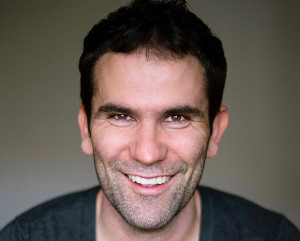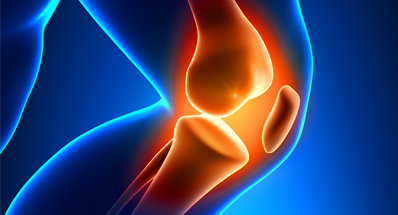That morning feeling.
The alarm snaps you awake. You fantasise about bounding straight out of bed, spinning in a few circles and leaping to your feet like you’re the star of a Broadway musical. Unfortunately, the reality is your body basically refuses to move. Your head feels groggy and your limbs heavy. The process of getting out of bed and starting your day seems to be a herculean feat. (5 things to do in the morning)
Your fantasy of being one of ‘those’ perky early birds will have to wait another day…
But what if it is possible to wake up feeling fresh and full of energy every day, regardless of age or any nagging arthritis conditions?
HOW DO YOU WAKE UP WITH MORE ENERGY?
A successful morning start often begins the evening before. The quality of your sleep, often more recently referred to as good ‘sleep hygiene’, can make all the difference to how you feel when you wake up.
GO TO SLEEP AND WAKE UP AT THE SAME TIME EVERY DAY
 For the night owls among us, this may not be easy at first, but by creating a regular sleep schedule you regulate your body clock (circadian rhythm). With consistency, your body becomes used to going to sleep at the same time which makes it easier to fall asleep. Likewise, when you wake up around the same time, you will begin to feel tired at the right time in the evening, rather than feeling wired later at night.
For the night owls among us, this may not be easy at first, but by creating a regular sleep schedule you regulate your body clock (circadian rhythm). With consistency, your body becomes used to going to sleep at the same time which makes it easier to fall asleep. Likewise, when you wake up around the same time, you will begin to feel tired at the right time in the evening, rather than feeling wired later at night.
It’s important to get up at the same time in the morning, regardless of how tired you may feel, or whether you slept enough. This helps set your circadian rhythm, your body’s 24-hour internal clock, in a more regular pattern.
With your body clock in sync, soon you’ll find you wake up with much more energy and bounce into your day.
PUT AWAY DIGITAL DEVICES AT LEAST 30 MINUTES BEFORE SLEEP

In a world full of screens and devices, it’s so easy to get drawn into the wonderful world of cyber – text messaging, scrolling and YouTubing late into the night. But unfortunately, digital screens emit a blue light which can disrupt our body’s natural cycle. Blue light emissions mimic daylight and can make us more alert, when we should be winding down. This is a very unnatural situation for the body. If we think of the pre- electronic era, our ancestors were free of digital temptations, as such, and thus operated in a more natural sync with the rhythm of the day – rising with the sun and turning in at sundown. These days our bodies are fighting to function in a world full of bright screens and a myriad of devices at our fingertips.
The blue toned light from computers and phones affects the production of melatonin, a sleep-related hormone which helps to make us feel sleepy. A PhD student at the University of Haifa in Israel, Amit Shai Green, investigated the effects of blue light on sleep by recruiting 19 volunteers in a sleep study. He found that looking at screens at night cut someone’s sleep by about 16 minutes. It also made people wake up more often at night, disrupting sleep. (Source)
TRY DEEP YOGA BREATHING
If you want to wake up with more energy, taking some deep breaths first thing in the morning can really help.
While you’re lying in bed and every fibre of your being simply wants to fall back into slumber, instead of ripping yourself up, you can energise your body with long, deep breaths.
Many studies have shown that deep yogic style breath, or pranayama, has numerous health benefits. Recently breath work has been popularised by Wim Hof, or ‘the iceman’ a Dutch athlete who teaches a deep breathing method that involves taking a series of circular breaths (without pausing) and then holding the breath for a minute to two minutes. Many people report a whole range of benefits to this, including increased energy and alertness and ability to focus. (Check out his video here)
But you don’t have to be this enthusiastic.
You can start with a few simple deep breaths when you first wake. A great way to wake up your body and senses as you lay in bed is to start a series of deep, rhythmic breaths. Don’t rush this process. This works best when you breathe deeply into your stomach. Let your stomach expand like a balloon. Let it rise up to your chest, then letting it fall back down again. Do a round of about 10 deep breaths.
Feel the air fill your lungs and spread energy through your body.
Doing this forces oxygen into your cells which improves circulation, wakes up your brain and boosts your energy levels.
GET SUNLIGHT
One of the first things we should do upon waking is seek out sunlight.

Again our circadian rhythms benefit greatly from sun exposure.
Why?
Light acts as a guide to our internal body clock by letting us know when we need to be alert and when we need to sleep. By starting your morning with sun, you’re waking up your body and getting it into sync with the natural cycle of the day.
The Sleep Foundation says; “exposing your body to the sun will not only help alert the brain and set you in motion, it will also help you sleep later on” (source link)
So, draw back your blinds as soon as you get up and let the light fill your room, or, even better – get out into the direct sunlight and bathe in the warmth.
HYDRATE

Instead, start by calmly drinking a full glass of water. This way your starting your day with natural, quality hydration.
You can always clutch your warm coffee mug in hand after. 😉
EAT A HIGH PROTEIN BREAKFAST
We all remember the old adage from our school days, but it’s true that the meal which ‘breaks our fast’ is the most important one. What we eat in the morning also sets the tone for our energy levels throughout the day. Granted, the breakfast menu will be different for everyone and needs to cater to your own personal constitution. But eating protein in the morning helps to increase your alertness by boosting your dopamine levels. Protein “helps your brain produce neurotransmitters called norepinephrine and dopamine, which give you energy and make you feel awake and alert” (source)
Good sources of protein for breakfast include Greek yogurt, cottage cheese, eggs, quinoa, fish (tuna or smoked salmon) and oats. It’s also best to avoid sugar and processed foods in the morning because this will immediately spike your blood sugar levels and start to sap your energy before the day has even got going.
So, with a few simple evening and morning habits your morning doesn’t have to be something to dread. You can be bounding into your day, super bright and musical (or sporty) much to the chagrin of your sluggish neighbours.
Resources: https://www.sleepfoundation.org/

Nick Dale
Nick is a lover of all things mentally and physically healthy, a personal development geek and trained yoga teacher. With a background as an ESL Teacher, Actor and Writer, communication in its many and varied forms is what keeps him sparked.




